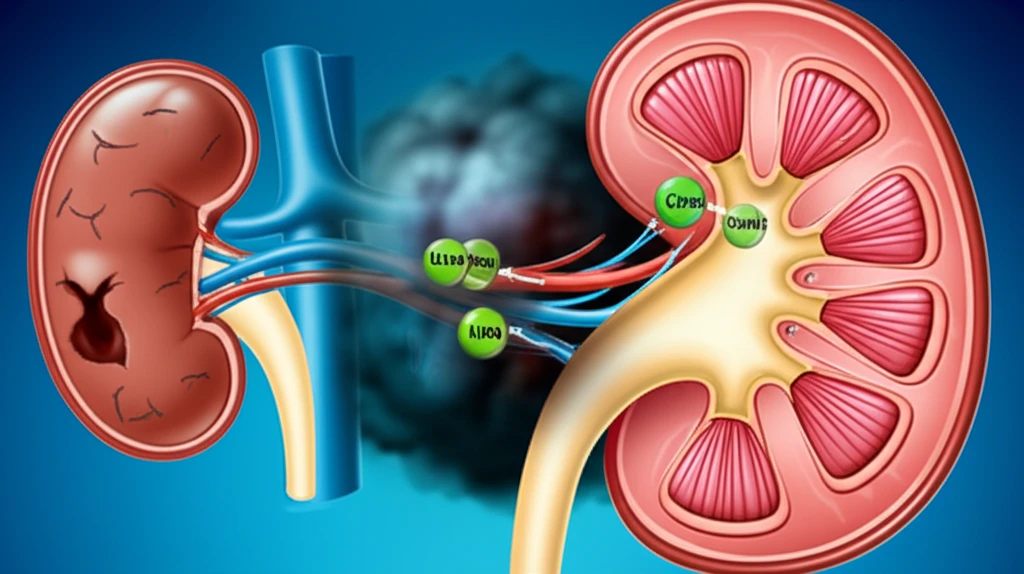
The Kidney Crisis Within: How Protein Carbamylation Threatens Your Health
"Unveiling the Silent Threat: Protein Carbamylation's Impact on Kidney Disease, Cardiovascular Health, and Longevity"
Imagine a world where your body is constantly under attack from unseen threats. This is the reality for many, and one of the stealthiest attackers goes by the name of protein carbamylation. This process, often overlooked, silently wages war on our health, particularly affecting those with kidney problems and increasing the risk of heart disease.
This article delves into the core of protein carbamylation, its origins, and the detrimental effects it can have on your health. We'll explore the ways in which it damages the body, especially in the context of kidney disease, and the groundbreaking research aiming to mitigate its impact.
Our goal is to empower you with knowledge, offering clear explanations and actionable insights. This is not just about understanding a complex biological process; it's about taking charge of your health and making informed decisions to protect yourself.
Understanding Protein Carbamylation: The Silent Threat

Protein carbamylation is a silent chemical reaction that occurs when proteins in your body are modified by cyanate, a byproduct of urea. Urea levels rise when the kidneys are unable to filter waste effectively. Although urea is naturally found in the body, its accumulation can lead to higher cyanate levels, causing proteins to become carbamylated. This process can change the structure and function of proteins, leading to various health problems.
- Kidney Disease: Protein carbamylation is most prevalent in those with kidney problems because their kidneys cannot effectively remove urea.
- Heart Disease: Studies suggest carbamylation contributes to cardiovascular problems, increasing the risk of heart attacks and strokes.
- Other Health Issues: Carbamylation has also been implicated in issues like anemia and complications related to diabetes.
Taking Action: Protecting Yourself from Protein Carbamylation
By understanding protein carbamylation and its impact, we can take proactive steps to safeguard our health. This includes managing kidney health, adopting heart-healthy lifestyles, and staying informed about new research and treatments. The information provided here is not a substitute for professional medical advice, but rather a starting point for a more informed approach to health and well-being. It’s about empowering yourself to take control and work with your healthcare providers to live a healthier life.
